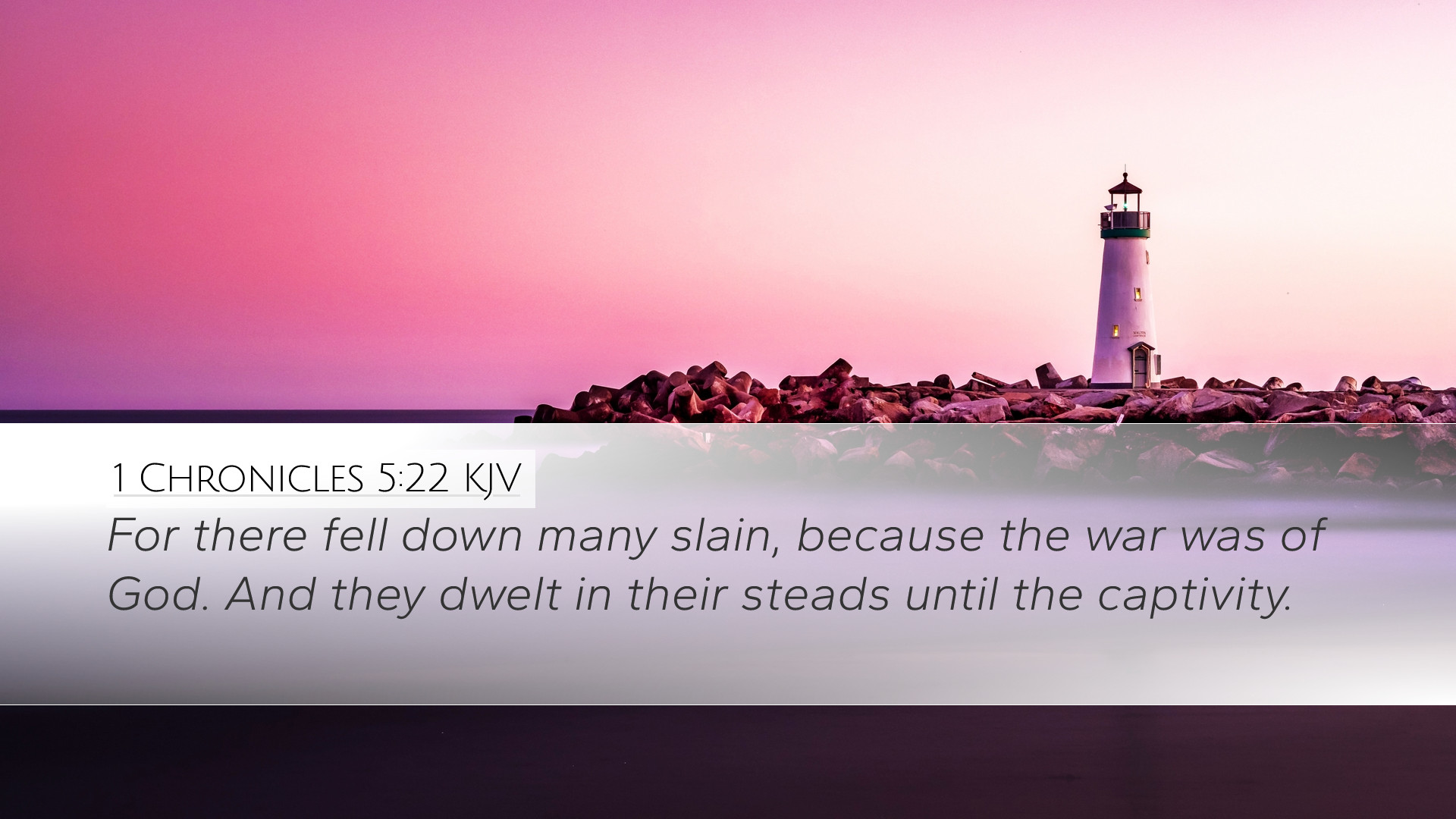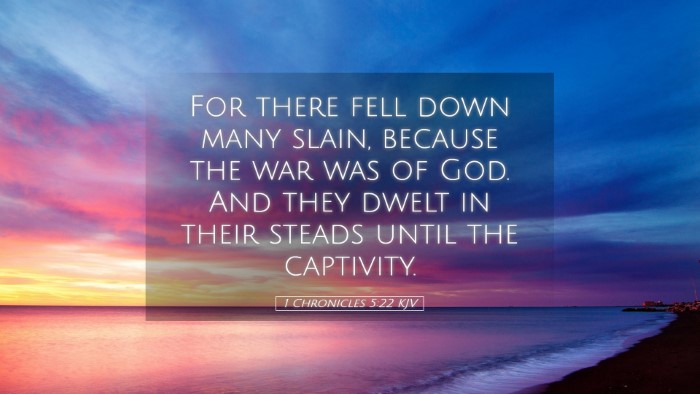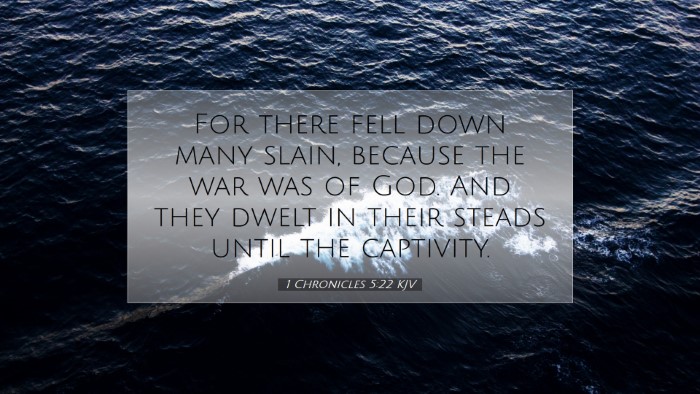Commentary on 1 Chronicles 5:22
Bible Verse: "For there fell down many slain, because the war was of God. And they dwelt in their steads until the captivity." (1 Chronicles 5:22, KJV)
Introduction
This passage from 1 Chronicles 5:22 serves as a significant reminder of the sovereignty of God in the affairs of men, particularly in the context of warfare and conflict among the tribes of Israel. In this commentary, we will explore various insights from public domain commentaries, examining the theological implications and historical context surrounding this verse to provide a richer understanding for pastors, students, theologians, and scholars.
Theological Significance
This verse conveys several important theological themes:
- The Sovereignty of God: The phrase "because the war was of God" indicates that the outcomes of battles are not merely a result of human strategy or strength but are orchestrated under divine sovereignty. This affirms the belief that God has authority over both natural and supernatural realms.
- The Purpose of God in Conflict: Conflicts and wars often serve divine purposes. As noted by Matthew Henry, there is an implication that God uses such events to fulfill His promises and to discipline or restore His people.
- Divine Assurance and Protection: God’s involvement in the war provides assurance to the people of Israel that their victories are secured by divine intervention. This suggests that they were not alone in their struggles and that faithfulness to God brings His protection.
Historical Context
Historically, this verse occurs during a time of tribal conflicts in Israel, particularly between the Reubenites, Gadites, and the half-tribe of Manasseh. Understanding this context is crucial for interpreting the significance of the events described:
- Tribal Alliances: The passage highlights the alliances between the tribes, which is an important aspect of Israelite identity. The conflicts discussed were not merely territorial but were also tied to deeper communal and familial ties.
- Captivity and Exile: The reference to "until the captivity" hints at the eventual downfall of these tribes and serves as a reminder of the consequences of disobedience to God. It emphasizes the themes of judgment and restoration found throughout the Old Testament.
Insights from Public Domain Commentaries
Matthew Henry's Commentary
Matthew Henry comments extensively on the nature of the warfare described in this verse, asserting that the context suggests a spiritual battle that aligns with God’s purposes. He notes that all victories achieved are ultimately due to the hand of God:
"It shows God’s hand in their victories, that the wars were of Him; and therefore, though they were slain, they did not fail in their endeavors, for the purpose of God was accomplished." (Matthew Henry)
Albert Barnes' Notes on the Bible
Albert Barnes emphasizes the role of Providence in the conflicts faced by the tribes. He indicates that divine oversight ensures that the outcomes reflect God’s will for the nation:
"The mention of God suggests that He directs human affairs according to His wisdom... their warfare was not for mere conquest, but as a fulfillment of God’s plans." (Albert Barnes)
Adam Clarke's Commentary
Adam Clarke provides further insight into the implications of God's involvement in warfare. He suggests that the notion of the war being 'of God' implies a divine commissioning of Israel to carry out His will:
"It is essential to perceive that God had a providential design in these conflicts; thus, they were engaged in fulfilling an aspect of His plan for Israel’s future." (Adam Clarke)
Practical Applications
From this commentary emerges several practical applications for contemporary believers:
- Trust in God’s Sovereignty: Pastors and leaders can emphasize the importance of trusting God’s sovereignty in all circumstances, particularly during times of conflict or difficulty.
- Understanding Divine Purpose: Believers are encouraged to seek the divine purpose in their struggles, recognizing that challenges may align with God’s greater plan for their lives and communities.
- Awareness of Spiritual Warfare: This passage leads to an understanding that believers are engaged in spiritual warfare, and awareness of God’s involvement is crucial for victory.
Conclusion
1 Chronicles 5:22 invites readers to reflect on the nature of conflict, divine purpose, and God’s sovereign will. By combining insights from respected biblical scholars and commentators, this examination highlights the timeless truths embedded in Scripture and underscores the relevance of these principles for modern-day believers.
In a world rife with challenges, understanding that our conflicts may serve a greater purpose can foster hope and resilience among God’s people.


